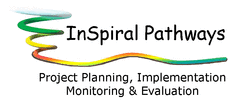From Marcus Cicero to Marci Shimoff, countless thought leaders over many millennia have spoken of the power of gratitude. One way of cultivating Cicero’s “parent of all virtues” is a daily gratitude practice. There are a few variations on this theme but the practice essentially boils down to listing a number of things that you are grateful for each day. It is a tried and tested way of developing our “appreciative muscles” – creating new neural pathways and strengthening existing body-mind connections to change our perceptions; so that we see ourselves, others, and our world in a better light. Numerous studies have demonstrated the benefits of gratitude in terms of increased life expectancy, improved health and many other indicators of an enhanced quality of life.
Some people explain the power of gratitude in terms of the law of attraction – your thoughts acting as magnets for life experiences; while others focus on the role of gratitude in shifting people from an unresourceful to a resourceful mental and physical state. Imagine, for instance, that your boss is unable to attend a meeting and they ask you, at short notice, to deliver a presentation in their place. If you are grateful for the opportunity you will be much more likely to benefit from the meeting than if you are resentful for the extra work load imposed.
My wife Julie and I began our daily gratitude practice in April 2013 after Julie bought Jackie Kelm’s book, The Joy of Appreciative Living: Your 28-day Plan to Greater Happiness in 3 Incredibly Easy Steps. One of the steps is a daily gratitude practice in which you write down three things you are grateful for each day… Incredibly Easy???
Well... actually not very easy at all in my case. Pretty soon after starting the practice I was feeling considerably worse than I had felt before we had begun, which was obviously NOT the intended outcome!! Either something was wrong with the plan or the way in which we'd been implementing it. Initially I was convinced that the plan was at fault but it soon became clear that we hadn't been doing it right.
When listing my three gratitudes I had been focusing solely on the obviously positive things – the weather is nice, our children are healthy, we have enough to eat, etc., etc. - typical motherhood and apple pie stuff. However, we both subconsciously steered clear of the “hidden gifts” that dwell in life’s more challenging situations.
With each passing day I found myself smiling through gritted teeth as my feelings of dissatisfaction bubbled and churned beneath the surface. We were doing all this “appreciative” stuff but we were still massively in debt, my consultancy contracts had dried up and I was not in perfect health... but I felt that I couldn't talk about these subjects because that would be "unappreciative"! This culminated in me quitting the “charade” in a fit of petulance on Day 14 as I tried, and failed, to envisage my joy-filled life!! In one fell swoop I had consigned Appreciative Living to the “nice but not for me” category.
I have to confess that I had not actually read Jackie’s book at this stage and Julie had only skimmed it, focusing mainly on Part Two “what you need to do” and not on Part One “what you need to know.”

In Part One Jackie explains, among other things, that every moment is replete with infinite possibilities and what we choose to focus on will become our experience – our map of reality. It was clear that gratitude actually means looking for the gifts in ALL situations; NOT drawing a veil over aspects of our lives that we wouldn't wish for in an ideal world - in other words not kidding ourselves.
Armed with our new understanding, we restarted the practice in May 2013 and looked for the joy in all situations. It was challenging at first, but with training our “appreciative muscles” progressively strengthened. Our daily gratitudes are now a firmly ingrained habit and they have helped to turn our lives around. We are now out of debt, my health is improving and I am being hired for lots of exciting work … much of it using the principles of Appreciative Inquiry, the organisational development paradigm that inspired Appreciative Living!!
The huge difference between gratitude and kidding ourselves was unclear to me back in April 2013 and my so-called “gratitude habit” actually ended up causing me more harm than good. Adopting an ostrich-like attitude to life’s challenges had left me vulnerable to some pretty powerful kicks in the rear end. But shining a light on the silver linings that dwell in every cloud, however small they appear to be at the time, has given me the strength to take action to deal with life's daily challenges as they arise rather than burying my head in the sand.
So while it is great to appreciate things when they are going well, the gratitude practice really comes into its own when it is used to address life's setbacks; because the excrement of life can then be turned into rich compost and used as the most potent of fertilizers for our growth.


 RSS Feed
RSS Feed
